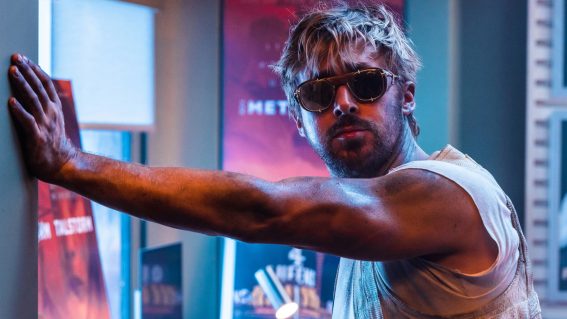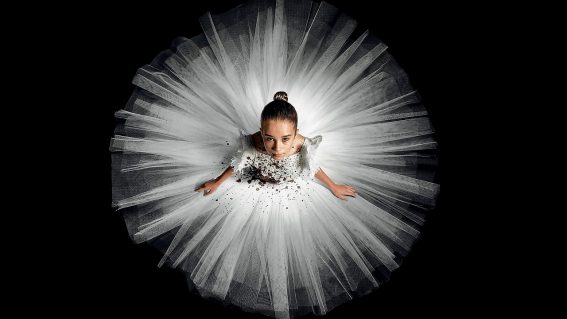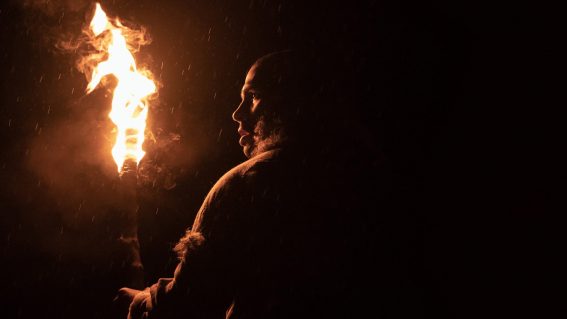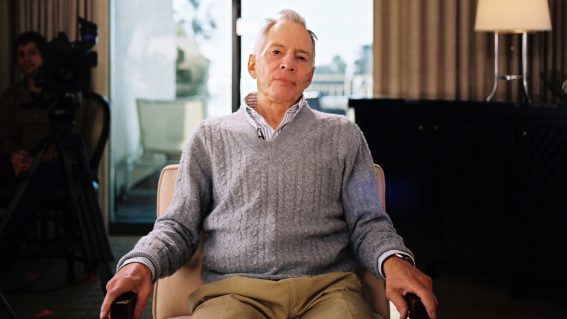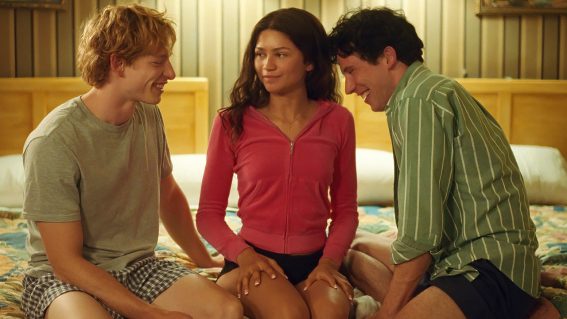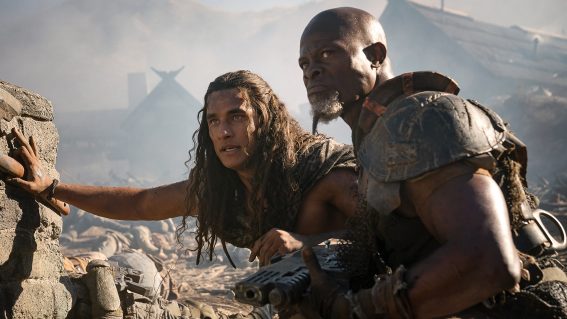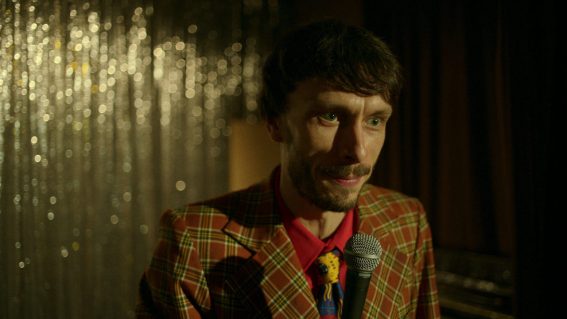Being a kid is both magical and terrifying in powerful supernatural thriller The Innocents
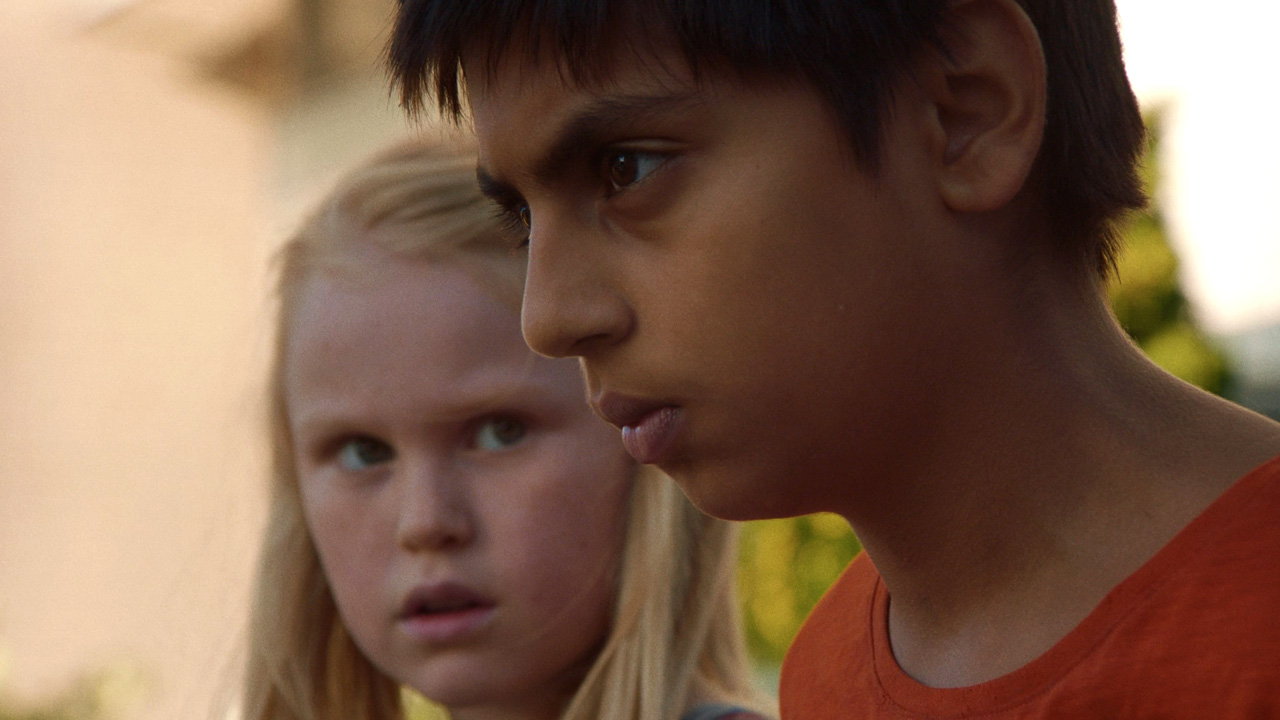
In The Innocents, a group of children reveal their dark and mysterious powers when the adults aren’t looking over the course of the summer. Powered by extraordinary young performances, Matt Glasby writes how this supernatural Nordic thriller captures the magic and terror of childhood.
The Innocents (2021)
The best films about childhood know a secret that most adults have forgotten. When you’re little, the world feels alive with possibility and riddled with danger. The hard part is working out the difference.
Set over a long summer holiday and shot in appropriately swollen hues, the second film by Norwegian writer-director Eskil Vogt (who scripted the Oscar-nominated The Worst Person In The World) captures this split exactly. For its protagonists, a gang of children with strange powers, being a kid is both magical and terrifying.
The film opens with nine-year-old Ida (Rakel Lenora Fløttum) and her older sister Anna (Alva Brynsmo Ramstad), who has non-verbal autism, moving to a new apartment block surrounded by forests and a lake with their parents. Here, in a shot recalling a key moment from Jack Clayton’s The Innocents (1961), Ida sees Ben (Sam Ashraf) across the water, just standing there as if she’d conjured him.
With nobody else to play with, they quickly become pals, and Ben lets her in on a secret: he can move objects with his mind. Meanwhile, Anna is befriended by Aisha (Mina Yasmin Bremseth Asheim), a little girl with ESP who helps her to communicate.
Like the children in Stephen King’s It, who are bonded by trauma and stronger as a group, the four explore their powers together. But where Aisha’s gift is gentle and nurturing, Ben uses his to lash out at those who hurt him.
This dark side echoes a quality we see in Ida. Despite her wholesome appearance, she is capable of breathless cruelty. This escalates quickly from the first scene, where we see her pinching poor Anna, to the moment she decides to put a piece of broken glass in her sister’s shoe.
As the summer goes on, the children’s powers escalate too, to the point where it’s impossible to tell what kind of film will emerge. Instead of going for Stranger Things-style sci-fi or out-and-out Carrie-esque horror, Vogt aims for something subtler and more uncanny. To this end, the moments of violence are all foreshadowed, so that when they happen we feel, like Aisha, that part of us has seen them before.
To remind the viewer what it actually feels like to be young, Vogt shoots everything from a child’s height and emphasises the tactility of familiar objects. So we watch Ida popping bubble wrap; Anna playing with clattering saucepan lids; Ida’s face leaving an impression in one of those 1980s Pin Art toys. Later, when things turn darker, the injuries—glass cuts, splinters, scaldings—are all ones we recognise from our own youths, even if they’ve been turned up to ten.
But no matter how serious things get, Ida and co always feel like real children—The Innocents of the title—due to the actors’ extraordinary performances. At bedtime, when Ida sees spooky, Badadook silhouettes on the wall, she asks her mum (Ellen Dorrit Petersen, the actor’s real mother) to stay with her. Ben, meanwhile, pushes his violently away, but still cries for her when he’s sad.
The result is very powerful indeed, like looking back through faded childhood photos and having it all—the joy, the pain, the entrancement and the uncertainty—come flooding back.





